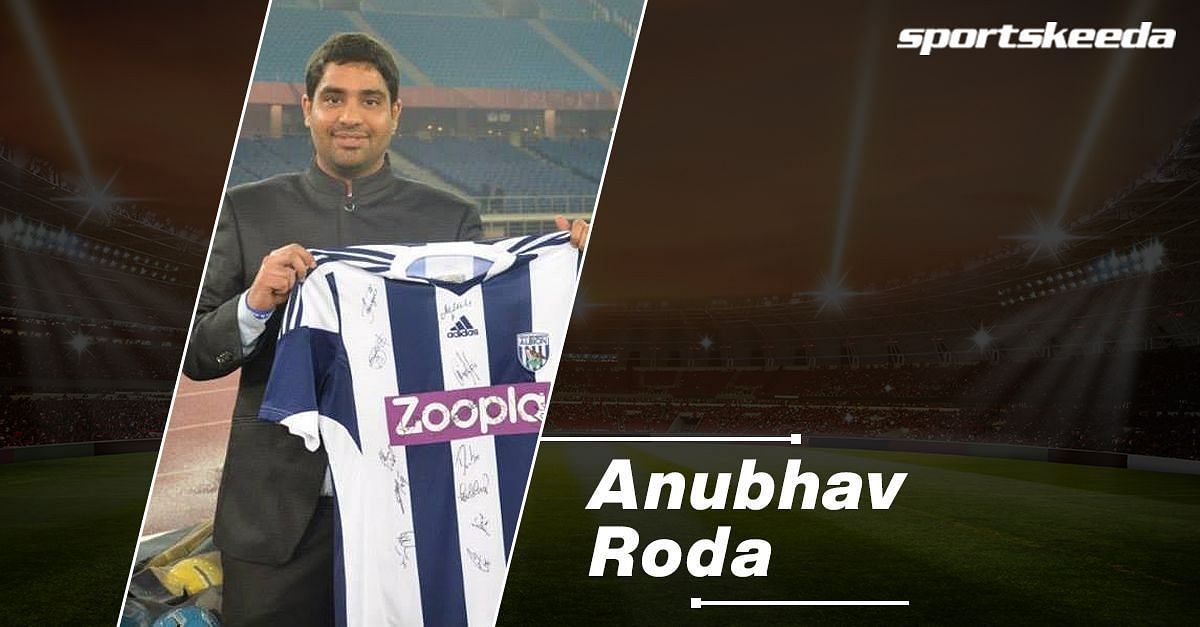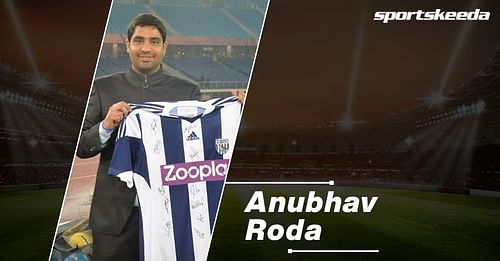
“Brands have realised the power of IPL and have confidence in achieving ROI” – Anubhav Roda, ex-PwC, Sports sponsorship and activation thought leader

The Indian Premier League (IPL) is back in India for 2022 and is being hosted in the cities of Mumbai and Pune. The signature T20 cricket tournament has not only been a benchmark for commercial success for an Indian sports property, but has also managed to garner a global reputation since its inception in 2008.
We caught up with Anubhav Roda, a sports management professional with experience of working with PwC and RISE, among other notable firms, and a thought leader in the space of sports sponsorship and activation. We talked about the sponsorship landscape of sports in general, and IPL in particular – past, present and future.
Power of IPL as a brand
IPL 2022 has recorded the highest ever revenue generated through sponsorship and has also seen individual franchises record stellar growth in value. Speaking of the highlights of this season, Anubhav said,
“This is the first time that the IPL has sold out its inventory and turned in close to INR 1000 crores in sponsorship revenue. It’s a clear indication of the power of the IPL brand and the confidence it gives to partners regarding reach and ROI. And that is only the central sponsorship – most individual franchises have also clocked double figure growth. The number of partners has consistently increased – Delhi Capitals have around 24 partners and even a new team like Gujarat Titans has more than 15 partners!”
Talking about the evolution of the sponsorship landscape for IPL, Anubhav pointed out,
“If we look at the kind of entities which partner with the IPL, you can see a shift – what was initially an inventory full of traditional household brands, has now seen the inclusion of start-ups and young brands. It’s obvious that start-ups or young brands with significant funds available to them see the IPL as a great platform for increasing their visibility and credibility amongst the masses.”
Evolution of sponsorship landscape
With the increased confidence in IPL as a brand promotion platform, many brands have jumped on the opportunity to align their activation campaigns with the IPL. Stating an example for 2022, Anubhav explained,
“Brands are not just looking to sponsor the IPL or franchises; they are also using their partnership to promote a newly launched product or feature – Swiggy has jumped on the opportunity to associate their Instamart offering with the “fastest delivery” of the match award. This has also led to a deeper look into brand association, with brands and franchises now looking at aligning their own ethos and principles rather than just put money on the table.”
Activation has indeed become a key aspect of the sponsorship landscape, and the need for credible partnership is felt more than ever in present day. So much so, that even a new franchise like Gujarat Titans has reiterated its intention to partner with brands which can align with how they want to position their franchise.
On the subject of credible partnership and expressing his view on Tata coming on board, Anubhav said,
“My guess is the partnership with Tata could be a win-win for both entities – after Vivo, IPL needed a brand which evoked Indian sentiments and Tata definitely adds a lot of credibility to any property it partners with. On Tata’s part, the success of Tata Motors’ partnership (120% increase in booking for Tata Nexon) would be fresh in their memory and also, they would leverage the reach of IPL to promote their newly launched Tata Neu app.”
Although the value of sponsorship provided by Vivo (INR 440 crore) was higher than Tata, the Indian MNC is still paying more than INR 300 crores in annual sponsorship, which is more than the amount committed by Dream 11 (INR 222 crore) – in effect TATA restores a bit of balance to IPL’s title sponsorship revenue.
Looking beyond the overall IPL property, even the sponsorship ecosystem for individual franchises has evolved over the years. Elaborating on the shift, Anubhav said,
“There is more maturity in the way brands and teams are partnering nowadays – you see an increase in the number of sponsorship categories – we have gone beyond generic terms like Associate Partners to specific categories. Boat as audio and wearable partner, Bombay Shaving Company as grooming partner, Bira as cheer partner – such distinctions not only increase the inventory but also has an immediate recognition of brand offering with the public.”
Another positive sign is the tendency of brands to now partner with multiple teams. Anubhav elaborated,
“Brands are now pushing to have multiple teams as their partners for the same or diverse categories – this gives them the opportunity to not only reach out to a larger fan base but also to leverage players from multiple teams for their campaigns – that’s a significant multiplier effect for the amount invested."
Future of sports sponsorship
IPL is undoubtedly leaps and bounds ahead of any other sporting property in India in terms of its commercial capabilities. However, looking at the bigger picture, sports sponsorship in general has seen remarkable evolution with the advent of new-age technology and fan engagement models.
Speaking of the future of sports sponsorship, Anubhav said,
“Globally, blockchain has been causing significant disruption in the sports sponsorship landscape and with the advent of NFTs and digital assets, it will be interesting to see how such organisations engage with partners and fans. It is important to not just look at the monetary aspect but also develop a fan engagement strategy – that is where digital offerings will have sustainable benefits.”
Elaborating further on the aspect of digital assets and fan engagement, Anubhav mentioned,
“Many clubs and leagues globally have initiated or are in the process of initiating Fan Tokens and NFTs. Even Metaverse is on the rise- Man City have planned to open their stadium in the metaverse, Real Madrid too has similar plans, and we now even have the Lucknow franchise who are testing waters with it. Horizm has partnered with Delhi Capitals to manage digital inventory – the signs are there for the future but it has to be focused on engagement and not just the money aspect.”
Anubhav also mentioned how leagues and teams are recognising the shift from TV towards OTT and this is steadily influencing their revenue generation and engagement strategies.
IPL is a household name in India, and has been for more than a decade now. However, over the past few years, there is also a global recognition of IPL as a brand and Anubhav believes there is untapped potential for engaging with global brand and audiences, whether through partnering with international organisations focusing on Indian consumers or by hosting season matches on foreign lands to engage with Indian audience there.
Whatever may be the on-field ups and downs during the season, one thing is clear- the IPL brand continues to be a commercial juggernaut with no signs of slowing down.